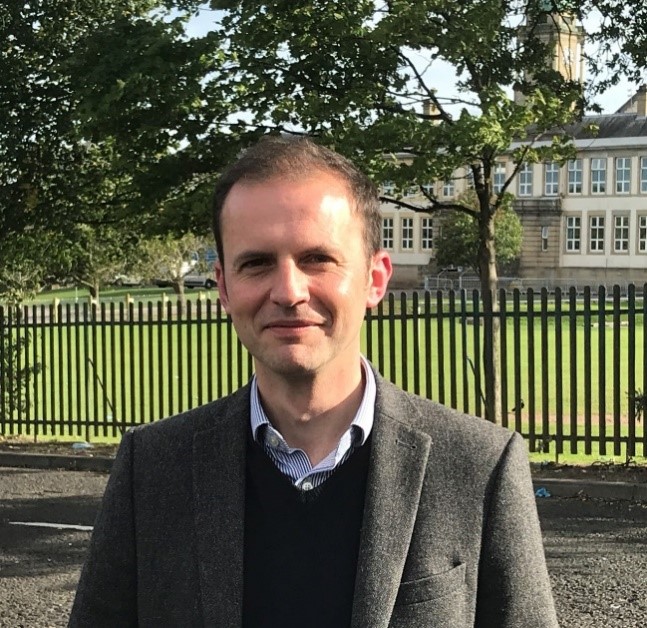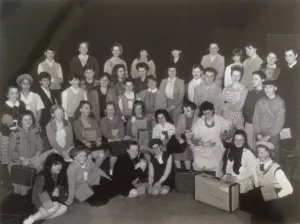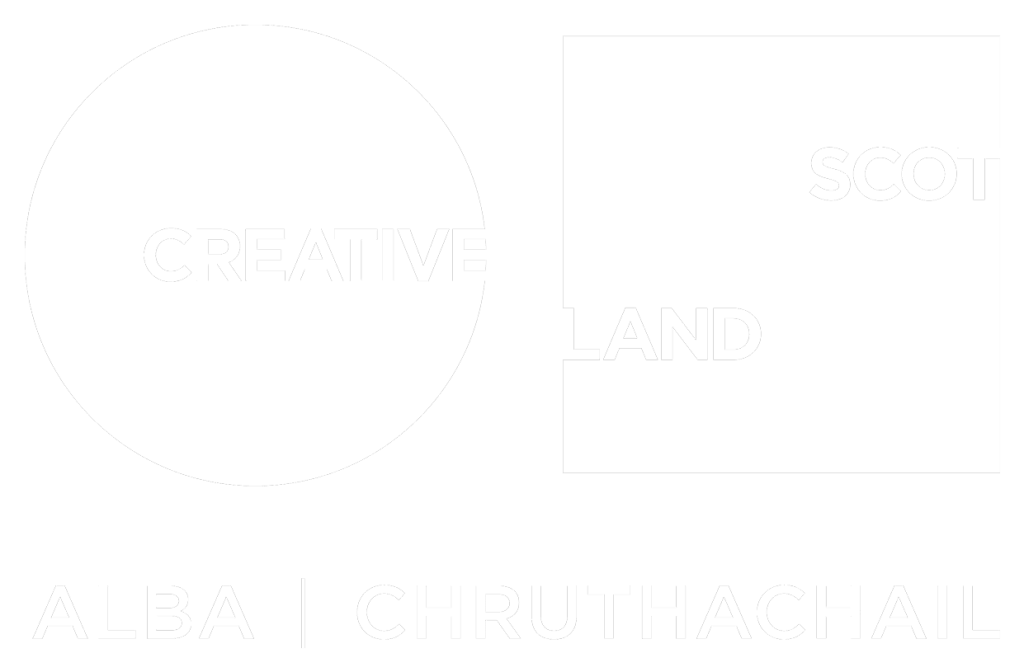Stephen (46) is currently a Professor of Practice in International Relations at the University of St Andrews. Reflecting on his career, Stephen attributes some of his success to the years he spent as a teenager at Perth Youth Theatre.

Prior to his current role, Stephen has worked with various international NGOs and institutions on peacebuilding, energy, and climate change. He has also served as MP for North East Fife, during which time he sat on the Foreign Affairs Select Committee, and was his party’s spokesperson for International Affairs & Europe.
“I would have really struggled if I hadn’t gone to youth theatre […] I’m not sure I would have done the things that I did subsequently had it not been for participation in youth theatre.”
Stephen particularly attributes skills he relied upon during his political career to his time at youth theatre. When making broadcast appearances on news programmes and shows such as Question Time, he drew especially on the confidence, articulacy, and concision which he learnt at youth theatre. These skills also proved valuable when he was asked to be his party’s spokesperson on International Affairs & Europe during the Brexit process:
“Unusually for a new MP, I was made a spokesperson straight away […] and all of the skillsets that you pick up at youth theatre apply to that political environment where you’re trying to articulate ideas in a limited set of time, often without notes, and do so confidently when people are trying to put you off.”
In addition to this, Stephen believes that youth theatre was a key influence on his empathetic and international outlook. He remembers having the opportunity to engage with others “from a wide range of different backgrounds”, and learning how to “step inside the shoes of somebody else”. One standout memory for Stephen is of Peace Child, an international production for which young people came from 14 countries to Perth in 1991, shortly after the fall of the Berlin Wall. He says this opened his eyes to an “international perspective from a young age”, and helped him to realise “that your perspective is just one perspective”. He has tried to carry this through to his adult life, both professionally and personally.
When Stephen first started at Perth Youth Theatre, he was struggling with having started at a different secondary school to his friends from primary school, and with his parents’ separation. At youth theatre, though, he found “a supportive, comfortable environment” in which he felt he could really be himself, and in which he could “really thrive”:
“I just enjoyed it straight away, and I got on with the other kids who were there as well. It was a bunch of kids with whom I probably had a lot more in common than many in my school year.”
For Stephen, youth theatre differed from his other sports-based extracurriculars in that it wasn’t dependent on skill or physicality, and in that it also offered opportunities for social and intellectual development. He describes his youth theatre as a “supportive group” where “people don’t mind how good you are”. It was a place to gain skills and confidence, as well as – crucially – a sense of self-assurance which he later found valuable when working alongside or even in opposition to more socioeconomically privileged peers.
In addition to these skills and this self-assurance, Stephen recalls gaining a more liberal and accepting outlook from his days at youth theatre, and expresses gratitude to his youth theatre leader for this. His leader inspired him not only through his efforts to coordinate the Peace Child production, thus exposing him to new cultures and to an international perspective, but also through his openness about his sexuality. In an otherwise “not very diverse” town, this was a positive experience:
“Our theatre leader was an openly gay man, and that doesn’t sound like a big deal, but it really was for some people at that time. He was so good about us learning about that, and being more accepting, and hopefully being slightly better citizens as a result of how he conducted himself and talked to us about that – because although it was easier in a theatre environment, it was especially good for kids like me (white, heterosexual, middle class) to get an understanding of how tricky it could be for people who […] some people found unacceptable.”
As well as the skills he believes have very evidently contributed to his professional success across international relations, politics, and academia, Stephen therefore credits youth theatre with one of his core life values. He tries to pass this onto his students today, telling them “that academically it’s great you can read a book and understand it, but actually almost more important is […] all the skills that you won’t pick up through academic learning”. He describes these skills more specifically as the “ability just to try and get on with people, to try and seek to empathise”. He admits that not everybody (himself included) can get it right every time, but emphasises the importance nonetheless of understanding that everyone has something to say which is “worth hearing, and talking about”.
Stephen is grateful, too, to youth theatre for enabling him to develop a group of friends who have remained friends for life. He describes their friendship as a “unique bond” made special by the youth theatre experiences they shared together, and he greatly values still having friends from the town in which he grew up. He feels, “it keeps you grounded, it gives you that sense of a local identity regardless of where you’re living the world”:
“I can’t understate how grateful I am to have gone to youth theatre and the way that it had such a positive influence on so many different aspects of my life.”

We are a registered charity in Scotland (No. SC035765) and a company limited by guarantee (No. 269952).




Website by Out of Place Studio